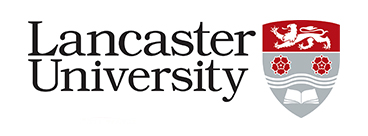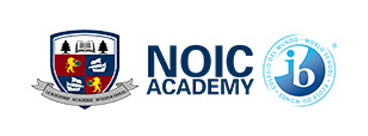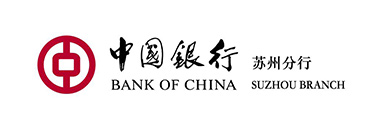20秋新港录取案例分享-香港中文大学
背景介绍
申请难点
留学规划与提升

MSc. Programme in Systems Engineering and Engineering Management is offered to engineers and professionals with a well-rounded education through a selected set of courses on state-of-the-art subjects and cutting-edge technologies
Required Courses
SEEM 5710 Principles of Engineering Management
This course is designed to provide fundamental principles of managing engineering and industrial organizations. The focus is on the application of quantitative and qualitative approaches in the practice of engineering management. Quantitative modelling and solution techniques for strategic and operational problems are discussed. The role of strategic management, strategy formulation, and strategy implementation are covered. Other strategic issues involving innovation and ethics are also addressed.
SEEM 5730 Information Technology Management
The challenges, techniques and technologies associated with the management of information technology (IT) in a competitive environment. The linkage of IT to business strategy and business process re-engineering. Different types of information systems: MIS, DSS, TPS. Information technology concepts: networking, database, batch and distributed processing. Development Process. Information system planning. Systems project management and control. IT acquisition, budgeting and deployment. Performance evaluation and audit. Operations management, privacy and security.
SEEM 5820 Models and Decisions with Financial Applications
Models of risks. Utility functions, and mean-variance theory. Probability models and price dynamics of securities. Geometric Brownian motion, Ito’s lemma, Black-Scholes model. Capital asset pricing. Risk hedging. Optimization techniques. Applications to investment and portfolio management. The emphasis is on mathematical modelling, analysis, and computation.
[Top]
Elective Courses
Students must complete 5 elective courses but they must take at least 1 from each of the following three areas. SEEM5910 may be grouped under any of the areas.
SEEM5910 Project in SEEM
Under the supervision of the course instructor, students carry out a practical project in Systems Engineering & Engineering Management. Company visits and field studies may be required to help students understand different business operating environments and their implications for solution development.
[Top]
Area I: Engineering Management
SEEM 5740 Engineering Economics
Principles of engineering economy. Value and cost, cash flows. Economic analysis of alternatives, technological, social, and human factors. Models involving allocation and scheduling of resources. Analytical techniques for evaluating industrial projects. Relationship between economics of technical choice and industrial productivity. Basic financial accounting concepts, accounting cycle, financial statements.
SEEM 5790 Project and Technology Management
Project screening and selection. Multiple-criteria methods for evaluation. Project structuring scheduling and budgeting. Resource management. Life-cycle costing. Project control. Computer support for project management. Forecasting of technology. Strategic and operational consideration of technology.
SEEM 5800 Logistics Management
Logistics planning. Integrated logistics management concept. Customer service. Channels of distribution systems. Order processing and information systems. Logistics network design , location and layout planning. Distribution and delivery planning. Transportation systems. Storage and material handling systems. Warehousing. Global logistics. Third-Party Logistics.
SEEM 5880 Supply Chain Management
This course introduces the key models and concepts in supply chain management. Topics include: demand forecasting, aggregate planning, supply management, inventory management, matching supply with uncertain demand, information distortion and demand management, information technologies for supply chain co-ordination, e-business models, etc.
[Top]
Area II: Information Systems
SEEM 5750 Expert Systems and Decision Support
Overview of management support systems. Data and model management in decision support systems. Group decision process. Group decision support systems and distributed group decision support systems. Executive information and support systems. Applications of artificial intelligence methodologies in decision support. Integration of decision support technologies. Design and development of management support systems. Organizational and societal impacts.
SEEM 5760 Client/Server Information Systems
Introduction to distributed computing. Client/Server theory and practice. Overview of major protocols and distributed system concepts. Management aspects: vision, priority and transition strategies, operational challenges.
SEEM 5770 Open Systems and Electronic Commerce
Introduction to open system standards and protocols. Transaction protocols. Electronic commerce applications using open system and artificial intelligence technologies. Application of intelligent agents for automated transaction processing. Integration of HTML and JAVA with information and communication systems.
Area III: Financial Engineering
SEEM 5830 Stochastic Investment Models
The focus of the course is on various stochastic models that support investment decisions. Overview of investment problems: pricing, hedging, portfolio selection, investment vs. consumption. Asset dynamics, binomial trees, Ito processes. Introduction to option pricing, Black-Scholes formula. Term structure, interest-rate derivatives. Portfolio optimization, optimal control models: Bellman equation and necessary conditions.
SEEM 5840 Financial Analysis and Security Trading
Working knowledge of different financial markets. Equity risk, bond risk, FOREX risk, commodity risk and their corresponding risk management practices. The use of REUTER’s, Bloomberg, Dow Jones, and TIBCO traders’ terminals.
SEEM 5870 Computational Finance
The course emphasizes the implementation of numerical algorithms applied to financial problems. The numerical methods include: binomial trees, Monte Carlo simulation, finite difference methods, among others. These methods will be applied to basic options, exotic options, futures, term structure, fixed income securities, dynamic trading strategies, and financial risk management.
院校解读
留学方案
案例分析
This taught programme is offered with the following objectives:
- To provide advanced training for engineers and professionals who aspire to take up more management responsibilities in their careers, and
- To offer students a well-rounded education through a selected set of courses on state-of-the-art subjects and cutting-edge technologies.
Management is the key issue in all business areas, and management success leads to business success. The possible continuous management success is built upon correct decisions made in dynamic changing business environments. There are over hundreds or even thousands of factors that need to be taken into account for a single decision making in management, and a single decision made may have significant impacts on other decisions to be made in a positive/negative manner. It becomes much challenging to achieve management success and retain management success in this century, due to economic globalization and the rapid growth of information available over the Internet.
The MSc programme in Systems Engineering and Engineering Management provides well-designed courses to train leaders in business areas to meet such challenges and to be capable of handling large-scale complex management issues, using advanced mathematics, advanced engineering techniques, and new IT techniques.
The courses we offer are comprehensive. It focuses on financial engineering, supply chain management, logistics, and information systems; and covers a wide range of topics in investment theory, models of risks, economic analysis, inventory theory, demand forecasting, integrated logistics management, project screening and selection, expert systems, networking, etc.
The courses we offer are flexible. There are a full-time mode of one year study and a part-time mode of two year study. Both local and non-local applications are encouraged to apply. Non-local applicants are particularly encouraged to apply to our full-time study mode.
Details about the programme, including the programme structure, courses description, admission requirements, graduation requirements, tuitions, and application procedure, can all be found in this website.
We are looking forward to working with you together to meet the challenges in this century!
Programme Director

















